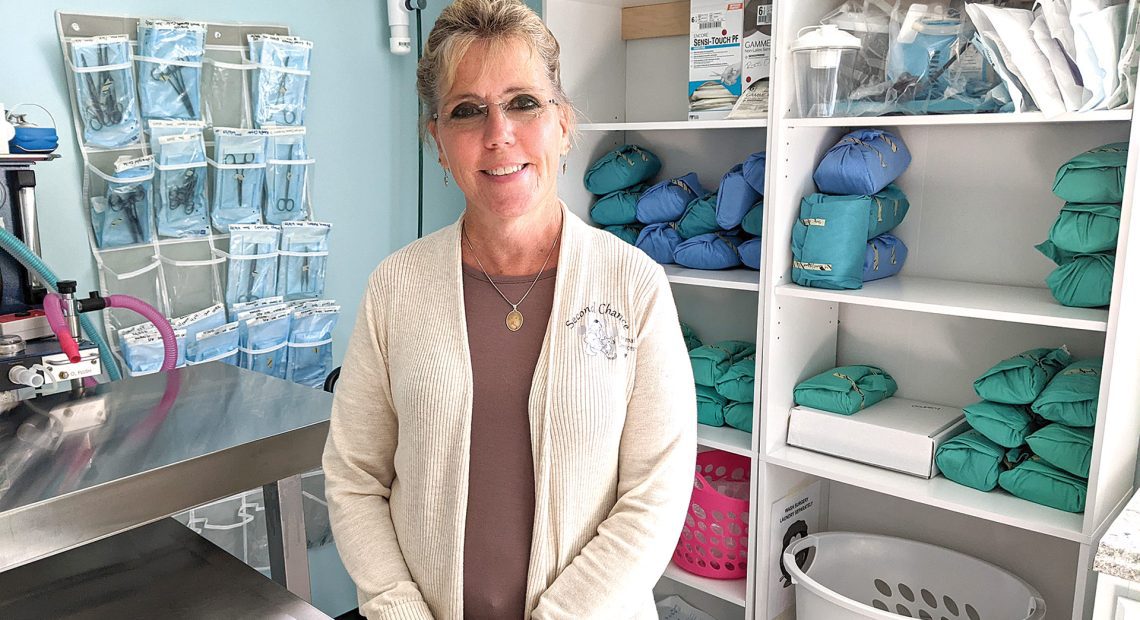
Second Chance Animal Services Improves Lives of Pets — and People
No Place Like Home
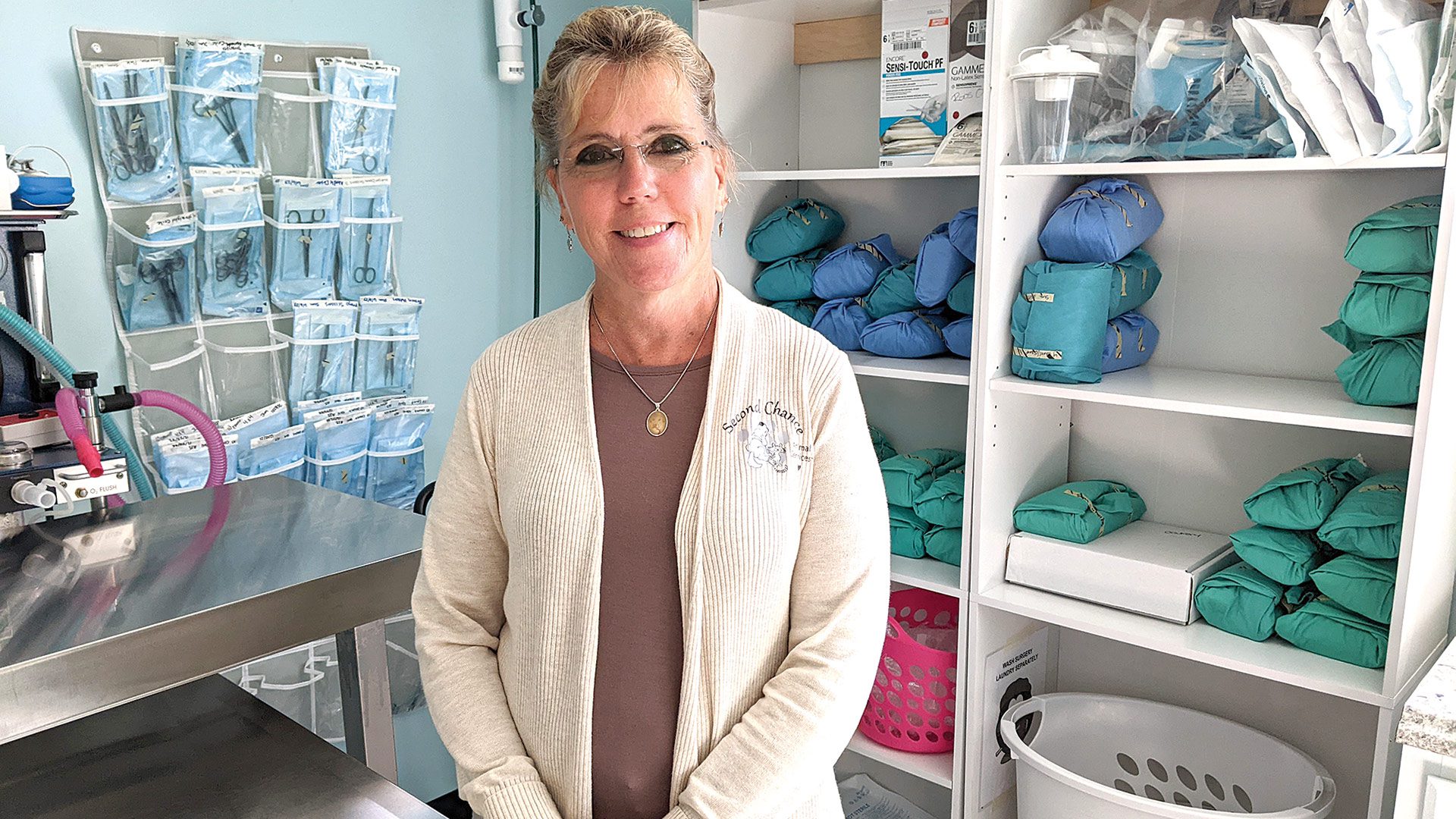
Founder and CEO Sheryl Blancato.
It’s called Homebound to the Rescue.
The idea behind this initiative, one of many launched over the years by Second Chance Animal Services, is that many senior citizens can’t afford to provide basic medical care for their pets or don’t have transportation to bring them to a vet.
What Second Chance does is bring care to the pet owner’s doorstep by visiting low-income senior-housing areas to offer low-cost vaccinations, testing, and other care, so the animals stay healthy and, just as important, don’t have to be surrendered because they can’t be properly cared for.
Then there’s Project Keep Me, which provides temporary housing for the pets of domestic-violence survivors, enabling their owners to seek safe housing arrangements while ensuring the well-being of their animal companions, and later returning them to a more stable environment. Without such a program, people in crisis often have to choose between staying in a dangerous situation and losing their beloved pets.
“Our main focus is what we call surrender prevention. If they have a loving home, we want to keep them there, if at all possible.”
“Maybe your sister can temporarily house you, but she’s got dogs, and you have cats, and the dogs don’t like cats, so you have to find a place for your cats,” said Sheryl Blancato, founder and CEO of Second Chance. “So we’ll take the cats, up to 90 days. It’s a wonderful experience to be able to get those people out. We hope that shelters take the animals as well, but not all shelters do. They just need that transition time, and we need to get them out of that dangerous situation.”
“Keeping families and pets together” is a slogan found on many of Second Chance’s brochures, and for good reason: it’s at the heart of what Blancato and her team do.
Simply put, she founded the organization in 1999 primarily to find homes for homeless animals, but later began providing low-cost medical care and vaccinations, realizing that healthy animals are less likely to be surrendered. And many of the programs that have followed have been with the same goal in mind: not only to help animals find homes, but keep as many as possible from being surrendered at all.
“Our main focus is what we call surrender prevention. If they have a loving home, we want to keep them there, if at all possible,” Blancato said in describing why programs like Homebound are so important. “For those that are on Social Security, retired, on a fixed income, those pets are often their sole daily companion. They’re vital to the health of the senior as well. They provide companionship, they keep your blood pressure down, they stave off loneliness, and with dogs, they walk them, so they get outside and meet people.”
This focus on not only making sure animals have good homes, but also improving quality of life for their owners has seen Second Chance expand its reach dramatically over the past 24 years. From its beginning with $400 in cash and donated land, it now encompasses four hospitals (in North Brookfield, Springfield, Worcester, and Southbridge) and serves about 44,000 animals a year.
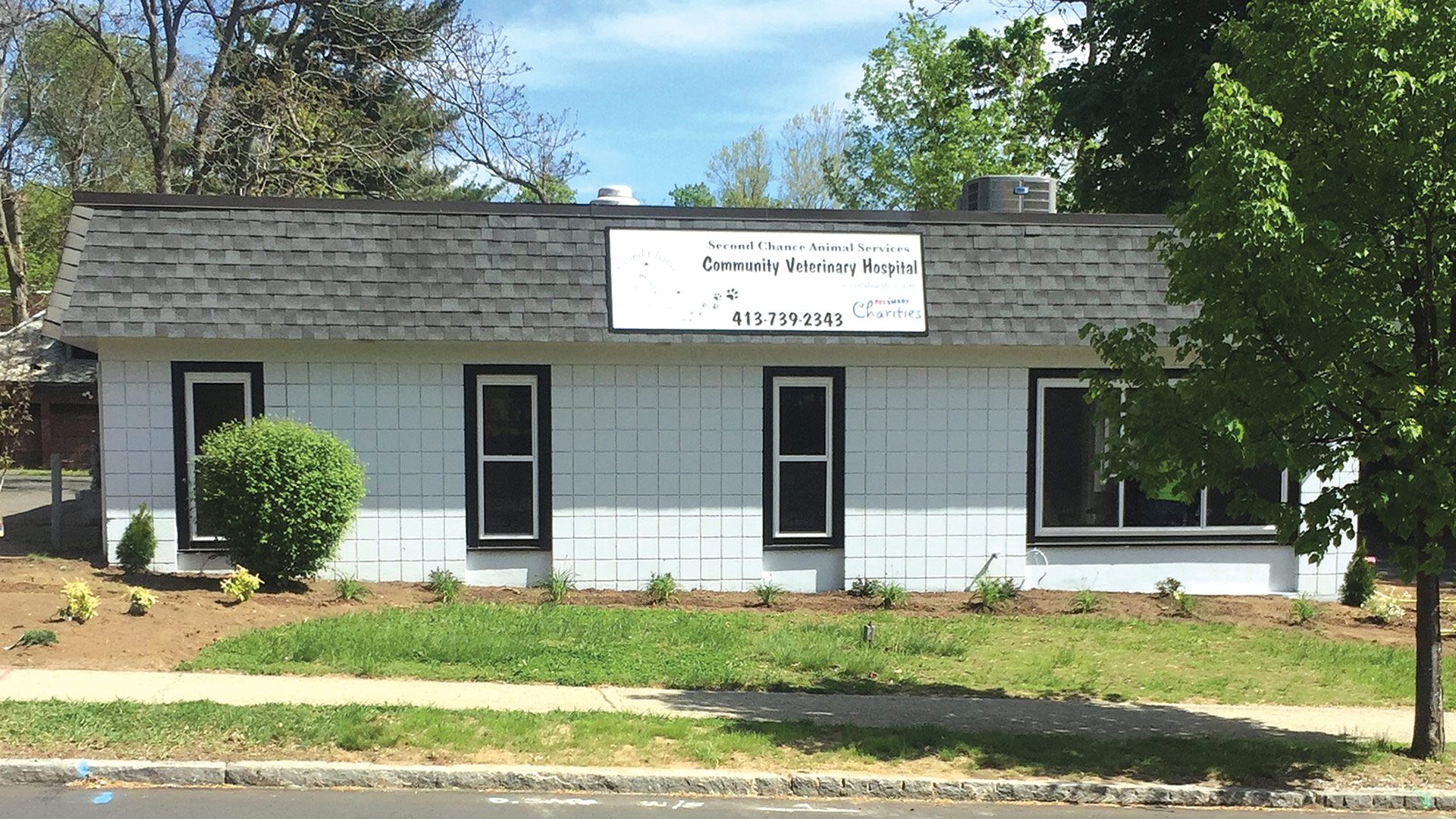
Second Chance’s Springfield location is one of its four community veterinary hospitals.
“There are times I’m like, ‘wow, this is amazing,’” Blancato said. “I’ll sometimes go in a hospital to meet with a manager or something, and I just watch what goes on in the lobby, and I listen. And I think, if I had helped 44,000 animals in my whole career, that would have been great. But to have that be a yearly thing is wonderful.”
For this issue’s focus on women in business, we visited one of those hospitals to sit down with Blancato to talk about the broad work of this nonprofit, why it’s so important, and why more people — and donors — need to know about it.
Bringing Home Buster
At least some of the credit for her long career in animal welfare goes to an escape artist named Buster.
That’s the puppy Blancato — then a single mother of three — adopted during her 20s, following a tough stretch in which her husband left and she battled cancer. And Buster was “ridiculous” at getting out of the yard. So Blancato got to know East Brookfield’s animal-control officer, and they became friends — and he eventually offered her a job as an animal-control assistant. He retired not long after, and she took over his role.
“ I think, if I had helped 44,000 animals in my whole career, that would have been great. But to have that be a yearly thing is wonderful.”
“Once I became an animal-control officer, I picked up a lot of strays that were never claimed. And the struggle I had was getting them homes, getting them medical care, all that stuff,” she recalled. “I worked with no-kill shelters, which were many in Massachusetts, and I would have to hold on to the dog for a few weeks. And I thought, ‘we need a resource here in this community.’”
As it turned out, a neighbor had a plot of land he wasn’t using, and when Blancato approached him, saying she’d like to start a shelter, and asking if he would donate the land, he agreed. By that time, she had adopted another dog, Dusty, who had been abused.
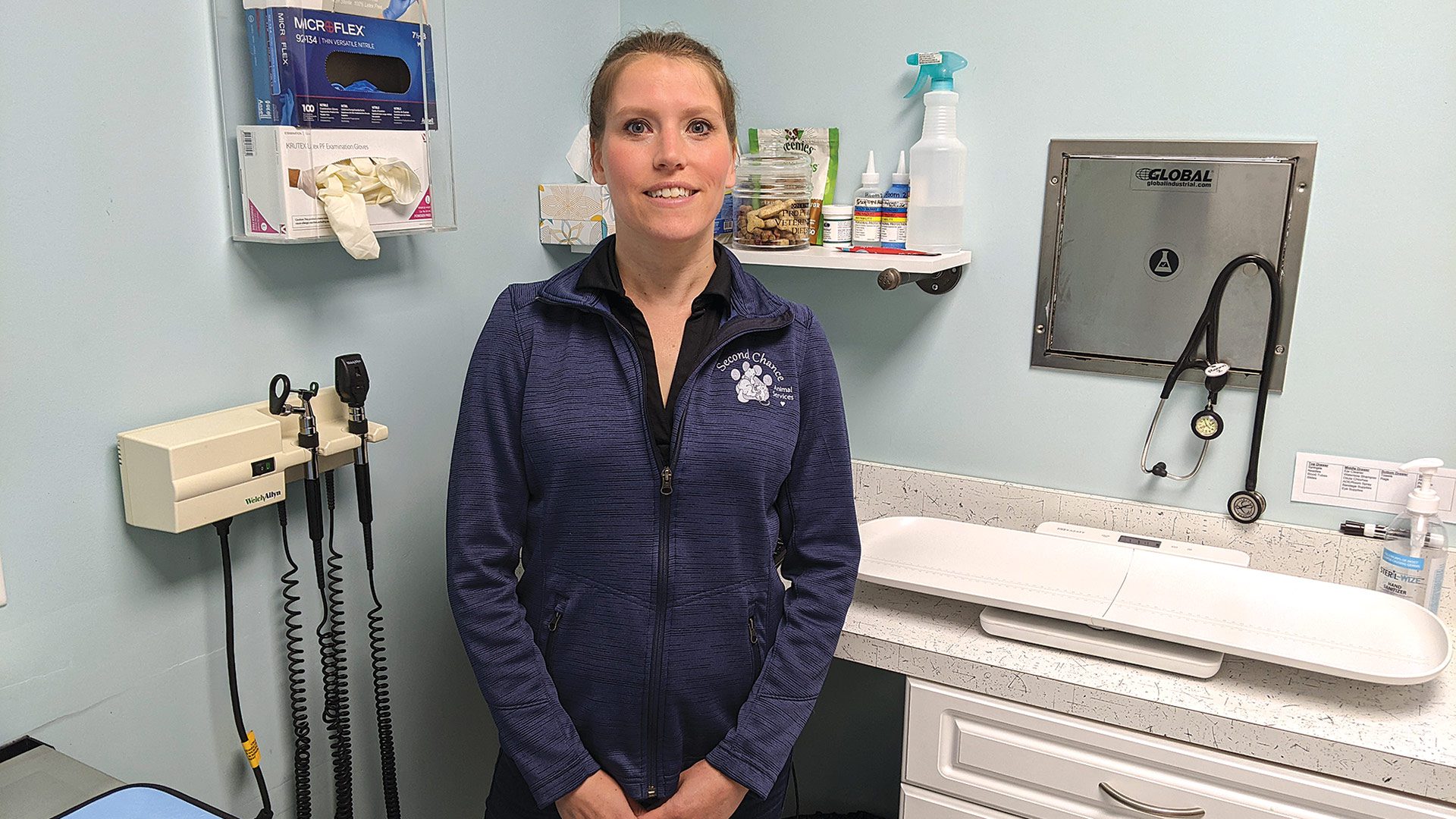
Lindsay Doray says Second Chance not only rescues animals, many from other parts of the country, but also provides services that allow owners to keep their pets and not have to surrender them in the first place.
“He was the reason this became really important to me, because if I didn’t take him in, what would have happened to this dog? So that was the real kickoff for Second Chance.”
So, while raising three children — and, by that time, two stepchildren — she took that $400, raised whatever else she could, and built the adoption center that still sits on the property today.
“The original intention, when I founded the organization, was that it was for helping homeless pets, but we quickly realized that a lot of animals were being surrendered simply because the people did not have the means to afford veterinary care — something catastrophic happened in their life or to the pet.”
The shelter was offering spay/neuter services and vaccines in the early years, but Blancato realized she could do more to keep pets and families together through expanded veterinary care. The first hospital was built in neighboring North Brookfield in 2010 and expanded to full-service care in 2013, and the other three hospitals followed, giving Second Chance a broad footprint across Central and Western Mass.
“We had to strategically place hospitals because not everybody could get to North Brookfield,” she explained. “We do about 1,500 to 1,700 adoptions a year, but the rest is veterinary — spay/neuter, vaccine clinics, all of our other programs and services.”
Those services also include:
• The Helping Hands outreach, which assisted 76 rescue sites, shelters, and municipal facilities in 2022, providing low-cost spay/neuter and vet care, while accepting homeless pets from other facilities;
• Project Good Dog, which matches behaviorally needy dogs with inmates in pre-release programs at local correctional institutions, providing 24/7 care and training for the dogs while teaching handlers patience, compassion, and responsibility;
• A pet-food pantry that served more than 7,600 pets in 2022, distributing dog and cat food to 25 local human food pantries — again, helping financially struggling families keep their pets;
• Mobile adoption, education, and vet-care events; and much more.
The low-cost veterinary care provided at the hospitals makes a huge difference, longtime Development Manager Lindsay Doray said.
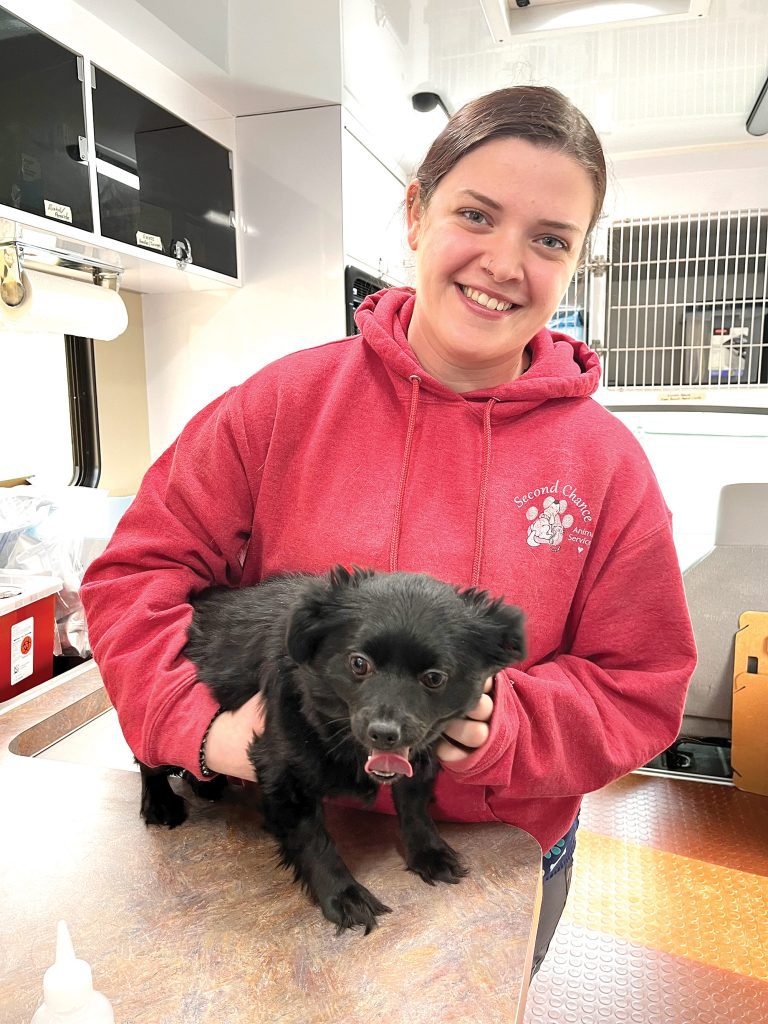
Second Chance’s Homebound to the Rescue program brings mobile vet services to seniors where they live.
“Prior to the services that we offer, people weren’t taking their pets to the vets yearly because they couldn’t afford to,” she noted. “Maybe they did the bare minimum and got the rabies vaccine, and that’s it. But when the animal became sick, either they would end up having to surrender the animal, or the animal would go without care.”
Blancato agreed that preventive care is critical.
“If you don’t get regular maintenance on your car, at some point, it breaks down, and then it’s very expensive. The same thing happens with animals,” she said. “A lot of people never go to the vet because of fear of the cost and everything involved. And once we get people in and they see that, ‘oh, this isn’t so bad,’ they understand that bringing them in yearly makes it a lot easier, and they can maintain the health of their pet for a lot less money.”
Second Chance’s services cost more than what clients can pay, so the nonprofit relies heavily on grants, donations, corporate sponsorships, and a few fundraising events each year to make up the difference and keep growing.
Even for adoptions, Doray said, “what we receive in adoption fees only covers about 50% of what we’ve put into the animal medically.”
At the same time, Second Chance is not short-changing its medical team, Blancato said.
“We have the highest quality of staff, and we pay at or above market standards because we want to attract veterinarians to us,” she said, noting that the U.S. is currently dealing with a shortage of between 7,000 and 10,000 veterinarians. Second Chance currently employs nine vets, but needs at least four more to keep up with demand.
“There’s a misnomer out there that, if you work for a nonprofit, we pay far less. And that hasn’t been true for many, many years,” she added. “We have to attract the same talent as any veterinary hospital; I’m competing for the same talent they are. I want the top talent here because I want the best of the care for the animals.”
Lending a Paw
Doray has worked with these animals — and families — long enough to understand the importance of what Second Chance does.
“I’ve had people say to me, ‘if people can’t afford an animal, they shouldn’t have one.’ And I say, ‘well, what about your 80-year-old grandmother who loses her husband, and she’s obviously not in the workforce anymore. You think she should have to give up her 15-year-old cat because now that she doesn’t have a spouse, there’s less money in the household?’ They say, ‘well, no, you can help those people.’
“Then I’m like, ‘OK, what about the woman who lost her husband at 45, and they’ve got three kids? Should they also have to give up the family dog because the husband’s gone and the mom now has to go back to work and she’s got three kids to support?’ ‘Well, no, you can help them.’
“‘So, what about a wheelchair-bound person whose dog or cat is their sole daily companion, and they’re not able to get anywhere? Should they have to give one up because they can’t physically work because of whatever injury or disability they have?’ And then they’re like, ‘oh, now I get it.’
“These are real-world situations that happen to people,” Doray continued. “Nobody expects to lose your spouse, but it happens, and you shouldn’t have to lose something else that you care about. Sometimes it’s a very temporary situation where you lose your job, and a year later, you’re back on your feet, and you’re able to pay the full veterinary cost.”
And many Second Chance clients do, indeed, pay full cost.
“Even for them, our rates are still very competitive,” Doray said. “But they also love our vets, and they support our mission, and they know that, by coming to us, they’re helping to subsidize the cost for somebody else, for the 80-year-old woman who just lost her husband and doesn’t want to lose her cat.”
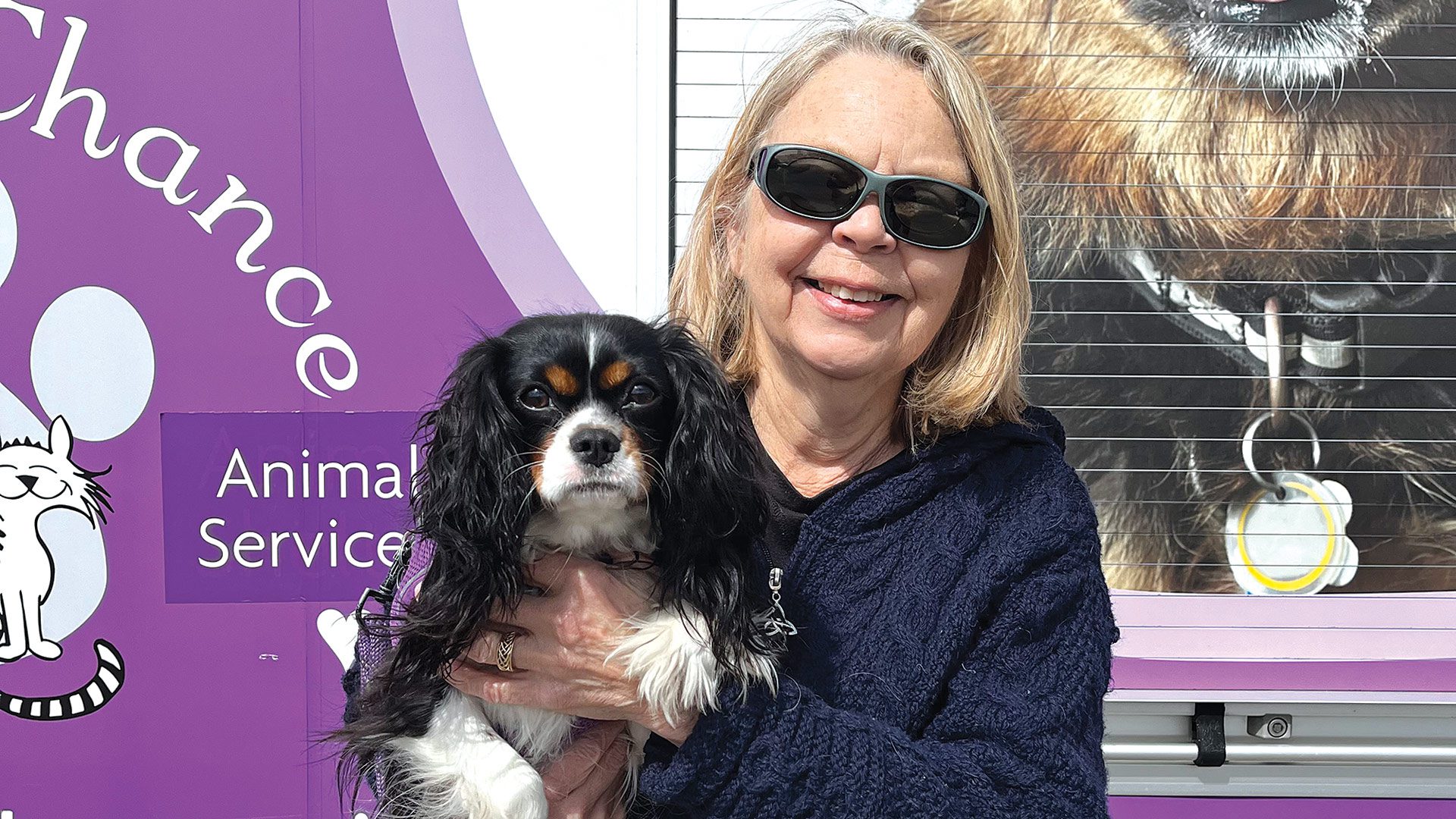
Second Chance operates mobile vaccine clinics across the region.
Second Chance pushed through the pandemic like all nonprofits did, but those years set back the cause of animal homelessness nationwide by bringing adoption and spay/neuter programs to a temporary standstill.
“In 2019, we were so excited because euthanasia in this country had dropped to a point that I figured, within two years, we would be at zero. Then COVID hit, and it basically flatlined everything for two years,” Blancato said. “Now, we’ve got two to five years to get to zero, when we were so close.
“It’s heartbreaking for all of us in animal welfare, and I know it’s been devastating in the South, because they got used to not having to euthanize for space, and now they’ve had to go back to it. That’s why we want to get as many animals up here as we can and get them homes, and be able to take more.”
Blancato doesn’t envision working more than 10 more years, and said the organization has been structured — with a strong, dedicated team in place — to continue thriving long after that.
And it should — “because the need isn’t going to ever go away,” she said. “There’s always going to be a need to take care of animals, there are always going to be animals that find themselves homeless, there are always going to be people who need veterinary care. So this is very gratifying. But I didn’t do it alone.”





